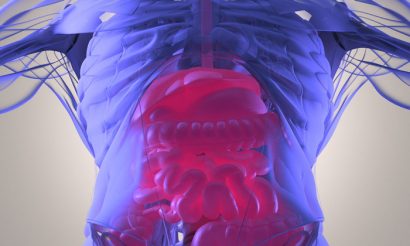NICE recommends Janssen’s Crohn’s Disease biological therapy
Posted: 2 May 2017 | | No comments yet
NICE has recommended Stelara (ustekinumab) in its final appraisal determination as a treatment option for adult patients with Crohn’s disease…


The National Institute for Health and Care Excellence (NICE) has recommended Janssen‘s Stelara (ustekinumab) in its final appraisal determination as a treatment option for adult patients with moderately to severely active Crohn’s disease, who have had an inadequate response with, lost response to, or were intolerant to either conventional therapy or a TNFα inhibitor or have medical contraindications to such therapies.


The NICE guidance issued states that ‘the choice of treatment between ustekinumab or another biological therapy should be made on an individual basis after discussion between the patient and their clinician about the advantages and disadvantages of the treatments available. If more than one treatment is suitable, the least expensive should be chosen (taking into account administration costs, dosage and price per dose)”.
Monoclonal antibody
Ustekinumab is the first human monoclonal antibody for Crohn’s disease to target the interleukin (IL)-12 and IL-23 cytokines, which play a key role in inflammatory and immune responses, giving it a different mode of action from other licensed therapies.
Dr Peter Irving, Consultant Gastroenterologist, Guy’s and St Thomas’ NHS Foundation Trust commented, “The promising results seen in the clinical trials suggest that the possibility of treating patients with a new drug employing a novel mode of action will reap real benefits for patients with a disease that can have enormous impact on their lives.”
Crohn’s disease affects approximately 115,000 people in the UK and is associated with abnormalities of the immune system that could be triggered by a genetic predisposition or other environmental factors. Usually affecting people between the ages of 10 and 40, Crohn’s disease is slightly more common in women than men, and symptoms can range from mild to severe, the most common being abdominal pain, diarrhoea, fatigue, fever, mouth ulcers, loss of appetite, weight loss and anaemia. There is currently a significant unmet medical need in Crohn’s disease, with slightly more than half of patients maintaining relief from their symptoms (remission) for more than one year with either currently available therapies, or no treatment.
Uncontrolled symptoms
Sarah Berry, Health Policy & Public Affairs Officer from Crohn’s and Colitis UK said, “The impact of uncontrolled symptoms of Crohn’s disease can be profoundly debilitating and current treatment options simply do not work for everyone. This ruling gives access to a desperately needed additional treatment option to those who may otherwise have been condemned to living with unmanageable disease progression with devastating impact on their quality of life.”
The FAD follows new data showing that treatment with ustekinumab maintains clinical response and remission in some patients for up to two years with no new safety signals observed.
“Therapies with a unique mode of action can be life-transforming for people living with this debilitating condition who have had problems with other treatments or are facing surgery. The clear guidance set out by NICE means that physicians can make informed decisions with their patients,”
commented Jennifer Lee, Director of Health Economics, Market Access and Reimbursement (HEMAR) and Advocacy at Janssen UK.
Related organisations
Janssen Inc., National Institute for Health and Care Excellence (NICE)




